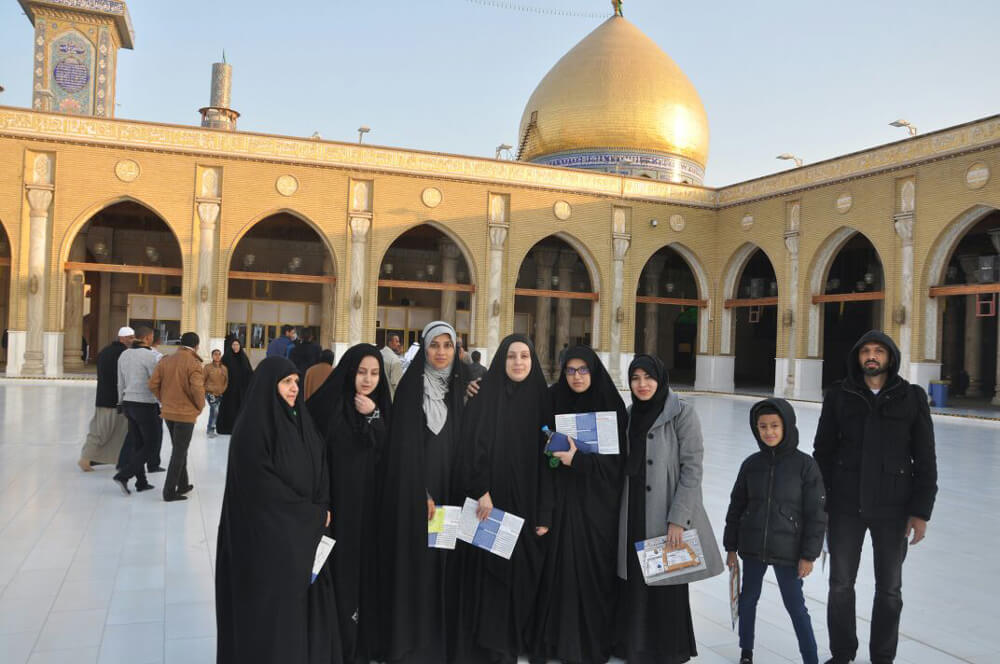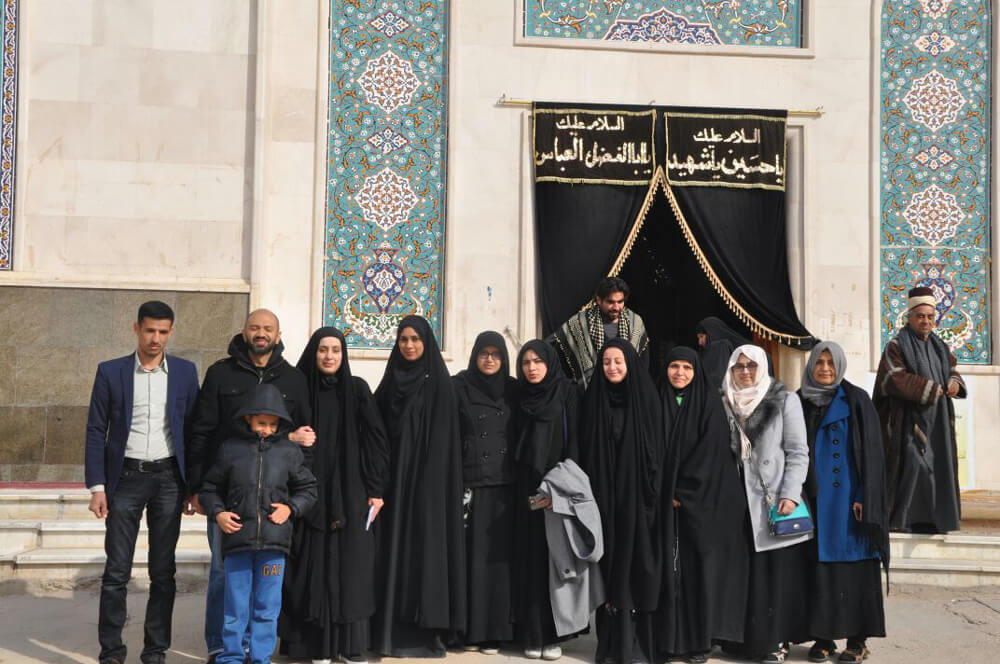Perspectives on Ziyarat – A Self-Enhancement Competition Reflection

Winners of the 2016 Self-Enhancement Competition pose for a group photo in Masjid Kufa, in the city of Kufa
There is always an anticipation that consumes the visitors of Karbala, especially if it is for the first time; and no matter how much you prepare for this journey, emotions overtake you when you are finally face to face with your beloved Imams. Abandoned are what you envisioned you were going to say or the personal expressions that you thought would materialize because the immense prestige (haybah) of that personality, in whose presence you find yourself, takes over and you are left feeling nothing but an attraction and a longing that will never leave you as long as you live.
Someone who had visited Najaf, Karbala and Kadhimayn once told me that the feeling of awe you experience at each of the graves of the holy Imams (p) is unique. I felt profound love at each of the shrines but indeed I also experienced varying emotions. It occurred to me that those emotions emanated from how we relate to our beloved Imams (p), which is a testament to how intimately we cherish our relationship with them. It was a feeling of sorrow and pain when I collapsed at the foot of Imam al-Hussain’s (p) grave, declaring to him “my beloved Imam, even though I was not there to help you when you called out ’is there anyone (left) to support us?’, my heart, my hearing, and my vision have answered you!” It was a feeling of reassurance and strength when I tightly grasped the mausoleum of Imam Ali (p) who I remembered is the father of our Islamic Nation (Ummah) after the Holy Prophet (pbuh). In the mosque of Amir Al-Mumineen (p) you feel a confident hand on your shoulder reminding you that there is nothing to be afraid of or worried about as long as you seek at the door of this holy household. And yet even more significant to some degree was the anguish I felt when I stood weeping at the grave of Imam al-Kadhim (p), for whom I feel a special love. All I could imagine at that moment was the dark and horribly oppressive cell he was imprisoned in, juxtaposed upon the hope, love and devotion he felt for Allah, the Most High, which caused him to declare: “my Lord, I requested you to grant me seclusion so I can worship you in peace, and You did, so I thank You for answering my prayer!”
Furthermore, the trip was immensely special because of the hospitable and generous people of Karbala whose hearts are so big that you feel humbled by their graciousness. In particular, the administrators and representatives of the Imam Hussain (p) Holy Shrine (al-A’tabah al-Hussainiyyah) kindly provided for all of our daily needs and actually went above and beyond the call of duty. Not only so that we could get the most spiritual benefit, but also to get a glimpse at the many initiatives that they are engaged in both in Iraq and across the world. I imagine this latter opportunity is not something most religious visitation (ziyarah) groups get. As a result of it, we were lucky to meet respected and dignified people such as Sheikh Abdul Mahdi Al-Karbalaei, who is the administrator general of the Shrine, Sheikh Ahmad As-Safi, who is the director of the Imam Hussain (p) School in Karbala, and Hajj Haidar al-Salami, who is the chief of the Shrine’s media division. Each of these men shared valuable words of wisdom and engaged us in a dialogue focused on collaboration and advancement of Islam’s message of peace. The advice of Sheikh Al-Karbalaei in particular has stayed with me because he spoke like a father addressing his children lovingly; he gave words of advice to those of us living in the West. He said “be firm on what you believe and practice the worship spelled out in your religion by focusing on the deeper meaning and value of every act”. This is what he referred to as the jewels (jawahir) of worship and indeed I feel it is only through such an approach that one can find fruition in faith. Sheikh al-Safi’s advice was similarly poignant, he said “ask yourself why you have come to Imam Hussain (p) and do not let anyone or anything deprive you of what you have gained over here”. As our trip neared its end, I am confident we all began to ponder why we had come to see Imam al-Hussain (p).
Consequently, leaving Karbala is not like departing from other places because it feels like you leave a significant part of yourself behind, always longing for the return and remembering those blessed souls you encountered. Hence, I would be remiss if I did not thank our guides Mr. Ali Jassem and Mr. Haidar al-Mankooshi, as well as Br. Salam, who escorted and accompanied us wherever we went, including visitations to Kufah, Hillah and other places where the holy personalities and the marks they have left on history remain. Imprinted on you is the difficult journey of Sayyida Zainab (p) from Karbala to Kufah, the quest of Hadhrat Abbas (p) for water and the dignity of Imam Hussain (p) in the face of immeasurable odds. I pray to Allah, the Most High that we were worthy and will be even more so in the future so our Imam (p) invites us again.
Haj Dr. Mehdi Saeed Hazari

